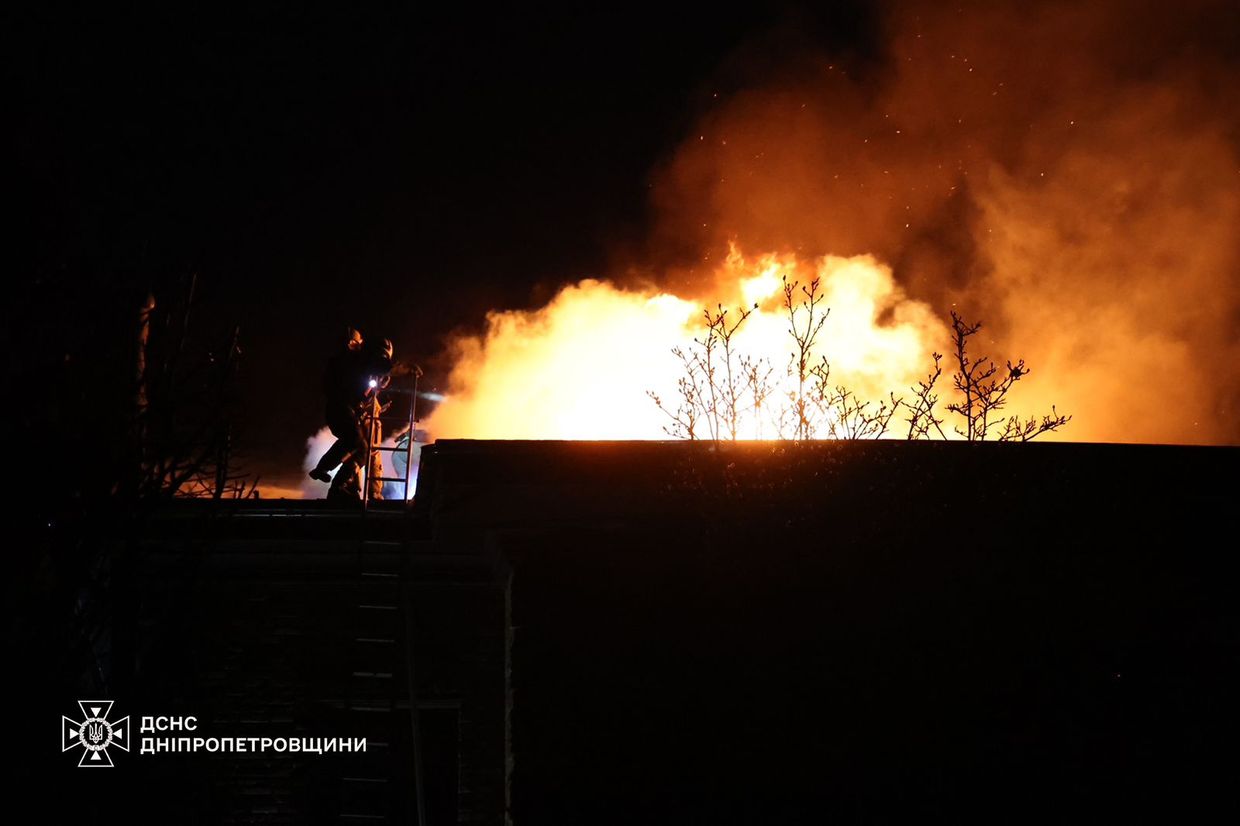Russian ICBM strike would be 'clear escalation,' EU says

Russia using an intercontinental ballistic missile (ICBM) against Ukraine would be a "clear escalation" by Moscow, EU foreign affairs spokesperson Peter Stano told reporters on Nov. 21 after Kyiv said Russian forces deployed the weapon.
"While we're assessing the full facts, it's obvious that such (an) attack would mark yet another clear escalation from the side of (Russian President Vladimir) Putin," Stano said, according to AFP.
The Ukrainian Air Force said that Russia launched nine missiles, including a conventional ICBM, against the central-eastern city of Dnipro on the morning of Nov. 21, injuring at least two people and damaging several buildings.
President Volodymyr Zelensky later clarified that the investigation is ongoing but that the missile's "speed and altitude suggest intercontinental ballistic capabilities."
If confirmed, it would mark the first occasion of Russia deploying an ICBM in the war against Ukraine, coming shortly after the U.S. permitted Ukraine to carry out strikes in Russia with Western long-range missiles and after Russia updated its nuclear deterrence policy.
While an undisclosed Ukrainian official told ABC News that Ukraine was "95%" certain Russia deployed an ICBM, a Western official quoted by the news outlet disputed the claim, saying it resembled a regular ballistic missile.
It remains unclear what type of ICBM was reportedly deployed. The missile was launched from Astrakhan Oblast in southern Russia, over 700 kilometers (435 miles) east of Dnipro.
Russia has not immediately commented. In a video clip widely shared in the media, Russian Foreign Ministry spokesperson Maria Zakharova received a phone call during a press conference apparently asking her not to comment on reports about "ballistic missile strikes."
Zakharova later claimed she was merely asking "experts whether this was our topic," and the "answer came during the briefing: the Foreign Ministry does not comment. There is no conspiracy."
If the use of such a weapon is confirmed, it would mark "quantitative and qualitative change" in the war, according to Stano.
According to the spokesperson, Russia is "playing a nuclear gamble. Whether they really mean it, it's very hard to foresee."
"We only know that this is irresponsible and this constitutes a global threat," he added.












